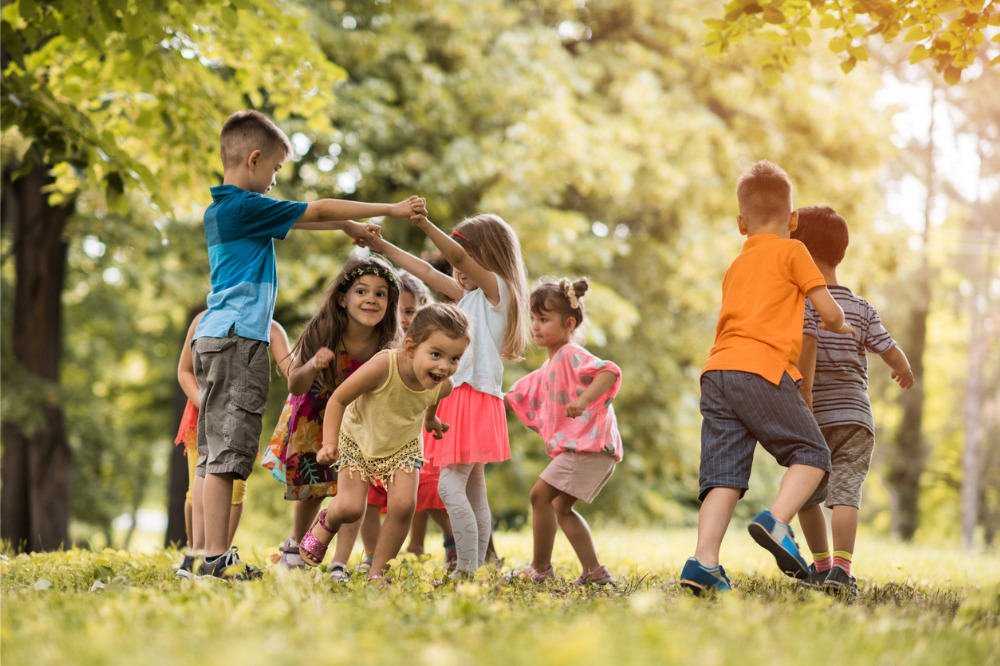
The latest research on the physical activity of young people indicates that less than a quarter of children aged 5–14 achieve the recommended 60 minutes of physical activity every day and spend just over two hours each day sitting or lying down for screen-based activities.
In response to this, a number of schools across Australia are introducing nature play environments in an effort to better connect primary students with the outdoors.
But while nature play infrastructure grows, new research from the University of South Australia shows that teachers also need a knowledge-boost on how to best link nature play areas to the curriculum and children’s learning.
Conducted in partnership with Nature Play SA, the Australian first study found that while all teachers believe that nature-based play and learning can deliver huge benefits for children, seven out of 10 teachers felt that their knowledge and confidence was limiting their ability to fully embrace these opportunities at school.
Surveying teachers in 50 South Australian schools, the study found that the benefits of nature-based play and learning for children included better mental health (98%); improved cognitive development (96%); learning about risk-taking (96%); and spending time outdoors/in nature (96%).
Barriers to adopting nature-based play and learning for teachers included limited knowledge and confidence about how to incorporate into learning or how to operate the class outside (68%); a crowded curriculum restricted their ability to adopt new learning (64%); and a lack of understanding/support from others in the school (38%).
Lead researcher and PhD candidate, Nicole Miller, says the importance of nature-based play and learning for children cannot be underestimated. She strongly advocates for schools to support professional development opportunities to develop nature-based teaching and learning skills.
“There is widespread concern that children are not spending enough time in nature and, as a result, that they may be missing out on the potential benefits that nature has to offer – both for wellbeing and learning,” Miller said.
“Emerging evidence indicates that nature-based play and learning can improve children’s social skills, learning, physical health, and wellbeing.”
Miller pointed out that while lots of schools are creating wonderful nature play areas, many teachers feel underprepared and uncertain about how to use these spaces to maximise teaching and learning opportunities aligned with the curriculum.
“For teachers in the know, nature-based play and learning is incredible. For example, cooking damper on an outdoor fire can encompass a range of curriculum skills – maths and measurement of ingredients, essential fire and safety skills, literacy, and sequencing skills from the recipe, as well as resourcefulness in finding the best sticks to use as skewers,” she explained.
“But simple activities can equally deliver benefits: using sticks to demonstrate how fractions are part of a whole can demonstrate problem solving in a hands-on way and help children better grasp more complex maths concepts.”
Miller said nature-based play and learning has significant potential for learning and wellbeing – both for students and teachers, but ways must be found to support teachers to upskill and feel confident in delivering learning opportunities in nature.
“Training, education, and support at the school level is essential for teachers to take the next step, but so too are system-level approaches to consider how nature-based learning can be formally included into the curriculum,” she said.
“Mitigating these barriers must be a focus to ensure children are able to access nature-based play and learning opportunities at school.”
Finnish educator, author and scholar, Professor Pasi Sahlberg says that while play itself may be natural and straightforward for most people, leading children’s play in school is highly complex and demanding task for teachers.
“Unfortunately, play is too often seen as opposite to learning – something we have earned after real work is done,” Professor Sahlberg told The Educator.
“I see play, especially free unstructured play, as a nonlinear social and cognitive human activity that requires specific educational expertise to be understood adequately”.
Professor Sahlberg said rather than equipping teachers with particular pedagogic skills, they would benefit more from deeper understanding of human mind, the power of imagination, and the role of social and emotional development.
“In other words, how children learn,” he said. “An important element in facilitating learning through play is to trust the process of play without rushing it and let the magic happen”.


